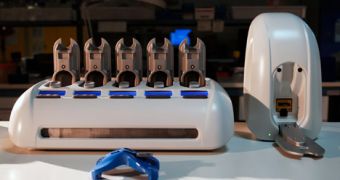Semiconductor manufacturer STMicroelectronics announced that it has successfully achieved a completely mobile processor able to detect a plethora of influenza viruses, such as the feared Bird Flu in humans and other animals.
According to its manufacturers, the chip offers identical performance to a fully-fledged laboratory and can perform a series of tests to identify multiple viruses within a two-hour timeframe. On the other side, conventional tests already on the market can detect a single pathogen per test, and the results are usually available within days.
Moreover, the new chip can also differentiate human strains of the Influenza A and B viruses, as well as its mutated variants, such as the Avian Flu or H5N1 strain. Detection of such influenza viruses is extremely important as the World Health Organization reported global deaths of 236 in humans, despite the fact that the H5N1 is a virus that mainly affects birds.
"ST sees new high growth opportunities in the healthcare market, especially in areas like patient care," said Francois Guibert, STMicro's Asia Pacific chief executive, during the commercial launch of the product.
The chip is called the VereFlu and is the result of a joint collaboration between STMicroelectronics and the Singapore-based Veredus Laboratories. The first units have successfully passed the field test at Singapore's National University Hospital last year.
The thumbnail-sized chip can only be used once, then disposed of for safety reasons. It can work with almost any patient sample, including human blood, serum or respiratory swabs. Although its primary application will be hospital use, the chip is likely to find another use in traveler screening inside airports or at the border checkpoints.
According to Guibert, the revenue contributions from the bird-flu detecting chip are expected to be "negligible" for the next year. However, the two partners claim that the company is already flooded with sales orders from hospitals as well as from other clients that are not related to the health system.

 14 DAY TRIAL //
14 DAY TRIAL //